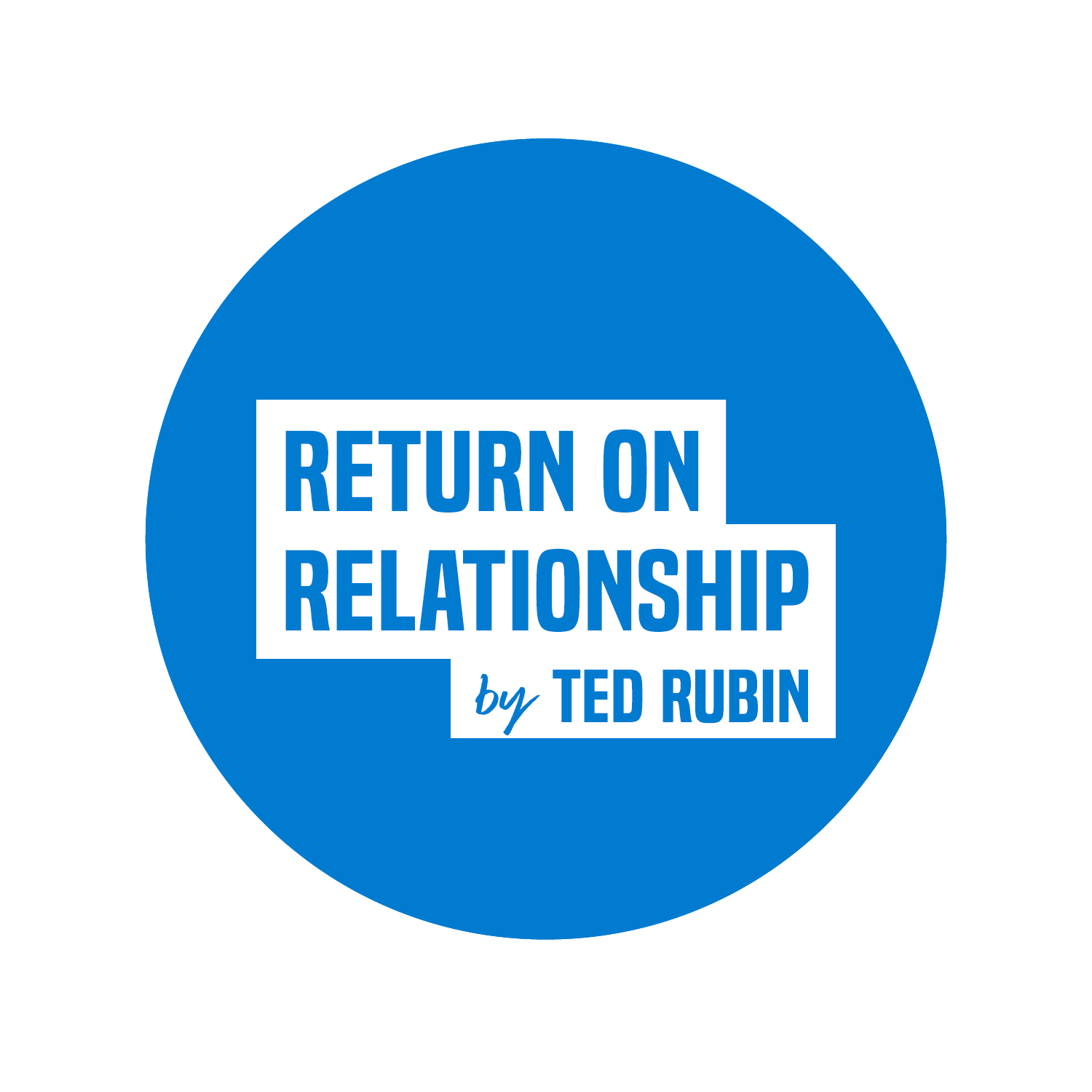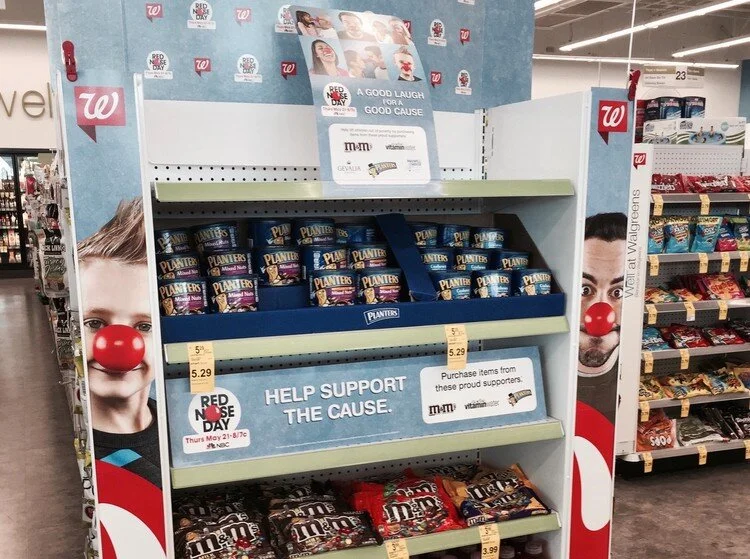What is customer experience? 19 industry experts weigh in ~via @UserTesting
Investing in customer experience drives revenue growth and increases customer loyalty.
According to Gartner, customer experience will be the main battleground for competing companies over the next two years. And when researchers analyzed the experience and revenue data from two $1 billion+ companies for a recent study published in the Harvard Business Review, they found that:
In transaction-based businesses, customers who had the best experiences spent 140% more than customers who had the worst experiences
In subscription-based businesses, customers who had the best experiences had a 74% chance of being a subscriber one year later, yet customers who had the worst experiences only had a 43%chance of remaining a subscriber a year later
Customer experience clearly has a big impact. But what is customer experience, exactly? It’s become a widely-used phrase in the last few years, but the problem is there’s no commonly accepted definition. Each person you ask will give you a different explanation.
That being said, let’s try to get a clearer picture of what it really means.
The definition of customer experience (CX)
According to Forrester, CX is how customers perceive their interactions with your company. They define good customer experiences as being made up of three things from the customer’s perspective:
Useful—they deliver value
Usable—the value is easy to find and engage with
Enjoyable—they’re emotionally engaging and people want to use them
And they define interactions as any time when you and your customers have a two-way exchange:
When customers navigate your Web site, call into your contact center, go into your retail location, talk to one of your employees, buy your products, use your products, respond to your emails — that’s when they’re making judgments about whether or not you meet their needs, are easy to do business with, and are enjoyable to do business with. That’s when they’re having an actual “customer experience.” —Harley Manning, Forrester Analyst
In other words, CX is about providing a useful, usable, and enjoyable experience to every customer, on every device, across every touchpoint—in a way that fulfills on the expectations that you set and the promises you made.
This definition is a great start, but we wanted an even more comprehensive picture. So to help you gain a better understanding of what CX really is, we reached out to 19 smart and talented industry experts and asked them:
“What is customer experience?”
Here’s what they had to say:
1. It’s how much your company exceeds or falls short of the expectations that every patron has for every interaction between them and your organization
Jay Baer
Founder of Convince & Convert, author of Hug Your Haters
“Customer experience is how much your company exceeds or falls short of the expectations that every patron has for every interaction between them and your organization. When you exceed customer expectations in a demonstrable, meaningful way you deliver ‘great customer experience.’ When you lag customer expectations in a noticeable, significant way you deliver ‘terrible customer experience.’ Maya Angelou once said that people may not remember what you wrote, and they may not remember what you said. But they will remember how you made them feel. Customer experience is how you make customers feel, and it’s based 100% on your actions vs. their expectations.”
2. It’s the customers’ perceptions about their interactions with an organization and the business discipline of designing and managing those interactions
Kerry Bodine
Co-author of Outside In, ex-Forrester Analyst
“When I talk about customer experience as a business discipline, I describe it as the design and management of all customer interactions. But it’s also important to think about customer experience from the customer perspective — and in that light, I describe it as customers’ thoughts, emotions, and perceptions about their interactions with an organization. When I meet someone who asks me what I do for work and I’m not sure if they’re familiar with CX, I’ll often just say that I help large companies improve their relationships with their customers. For me, that’s the essence of customer experience.”
3. CX is all about the value that accrues as you nurture a relationship over time through connection, trust, loyalty, recommendations, and sharing
Ted Rubin
CMO of Brand Innovators, co-author of Return on Relationship
“Today’s consumer is busy, distracted and a little overwhelmed with technology, so once you get to know them, spend time thinking about how you help them. If we spent more time asking ourselves ‘How can I help?’ rather than ‘How can I sell?’ customers would be a lot better off, and our business would thrive… and that is what Customer Experience is all about.
What makes your brand special? What is it about what you offer (or the way you offer it) that makes people sit up and take notice? Better yet, what makes their experiences with your brand unique? When you know your audience well enough to understand their motivations and empathize with them, it’s much easier to distil your unique value proposition. Having a crystal-clear vision of your value helps your brand in two ways. It helps you create content that will attract your audience, and gives your employees a mission standard for ensuring that all experiences with your brand are exceptional.
In the end it’s all about ROR: Return on Relationship, #RonR… simply put the value that is accrued by a person or brand due to nurturing a relationship. ROI is simple $’s and cents. ROR is the value (both perceived and real) that will accrue over time through connection, trust, loyalty, recommendations, and sharing.”
4. CX is a lot like a great marriage or partnership: early experiences have a great impact on the relationship, and every interaction is a debit or credit
Maggie Young
SVP of Customer Experience at UserTesting
“Customer experience is a lot like a great marriage or partnership. Early experiences have a great impact on the future (or even failure) of the relationship. Every interaction is a debit or credit. As the relationship matures, it’s too easy to take it for granted instead of trying to strengthen and deepen the connection. In a great relationship, there’s a unique feeling of a deep understanding, respect, common goals and shared experiences. This holds true for great customer experiences too. When a company gets it right, CX goes way beyond an NPS or CSat score—it’s all about knowing and understanding your customer so well that the experiences are designed to anticipate a need or desire. When it all comes together, it’s a wonderful, consistent expression of your brand.
I remember reading a comment in a customer survey when I was at Zappos. It read something like: ‘I love you and I don’t care what you sell—I know I’ll buy from you. Boots, boats, bananas, whatever—I know you’ll take care of me.’
The experience becomes the brand.”
5. It’s about delivering the outcome your customers need to achieve in the way that they want to achieve it
Lincoln Murphy
Founder of Sixteen Ventures, Customer Success Evangelist at Gainsight
“Customer Experience is the experience the customer has across their entire lifecycle with you; from sales and marketing, through engagement, expansion, and even when they cancel. My view on Customer Experience as it relates to mapping the customer journey, as well as designing and engineering the processes that move the customer along, is that it must be derived from the customer’s Desired Outcome.
Desired Outcome consists of two parts:
Their Required Outcome – what they need to achieve or do
Their Appropriate Experience – how they want or need to achieve that Required Outcome
When you understand that, you can engineer and design a process that helps the customer achieve that Desired Outcome, which may be ‘creating’ the experience the Customer will have, but is drawn from a deep understanding of the customer and is designed to help them reach their goals… not yours.
Customer Experience is too often defined as the experience we want the customer to have, rather than the appropriate experience for the customer (segment) as they move toward achieving their required outcome.”
6. It’s about making interactions memorable and personal so that customers want to spend more time with the company because they see it as time well spent
Joe Pine
Co-founder of Strategic Horizons, author of The Experience Economy
“When most people use the term ‘customer experience’ they mean making interactions nice, easy, and convenient. However, those are all service characteristics and the antithesis of what a true, distinctive experience is! Experiences, which are a distinct economic offering, should not be merely nice, but must bememorable; should not necessarily be easy but must be personal—for the experience actually happens inside of people; and should definitely not be convenient, for that means spending less time with customers. Rather, customers—guests is a better term—should want to spend more time with the company because they view that as time well spent.”
7. CX is the totality of someone’s experience with a company
Peep Laja
Founder of ConversionXL
“Whole customer experience is the totality of someone’s experience with a company. Think of it this way:
Amazon Prime has a 74% conversion rate. Maybe you have 5% conversion rate. So Amazon converts 15x better. Is their design 15x better? Or copy? No.
The fact that Amazon has a huge amount of reviews is part of a great user experience. Amazon Prime and 2-day free shipping, one-click checkout, previous positive experiences, and easy returns all contribute to the customer experience. So when people need to buy something, they are much more likely to buy again from Amazon. ‘Conversion rate’ goes up, but it’s not due to the layout and copy (which help), but how it all comes together for the end user.”
8. It’s everything your brand does for your customers, to your customers, and how it makes them feel
Mike Wittenstein
Founder of Storyminers
“Customer Experience (CX) is everything your brand does for your customers, everything your business processes do to them, and how it makes them feel.
In more words a company’s brand makes promises to its customer on what it will do for them. That’s the good part. The FOR part.
Often, the business makes its own customers work too hard or forces processes on them that don’t deliver value to them. This is the bad part. The TO part.
How customers feel is a valid business outcome, one that many successful brands are taking ownership of. Customers that feel good about you stick with you—and tell their friends.”
9. It’s the combination of pleasure and pain a person goes through trying your product and using it on a continuous basis
Sean Ellis
Founder of Qualaroo and GrowthHackers.com
“Customer experience is the combination of pleasure and pain a person goes through trying your product and using it on a continuous basis. Customer experience extends to all touch points they have with your business ranging from interactions with your advertising, website, product, support team, sales team, content you’ve published, emails you send, etc. A great customer experience is necessary to unlock the most powerful growth driver, which is natural word of mouth from very happy customers.”
10. It’s every contact the customer has with your people, your product, and the way it’s delivered
Shep Hyken
New York Times best-selling author of The Amazement Revolution
“Many people think that customer experience (CX) is customer service. It used to be, but now it’s much more than that. It’s every contact the customer has with your people, your product and the way it is delivered. It includes service, packaging, the actual product itself and more. It’s everything. Give the customer an experience, at every level, that they will want again (from you) and want to talk about to their friends and/or colleagues. It’s your best marketing. It’s your best sales tool. It’s what will drive your success.”
11. It’s about turning someone who has no idea you exist into someone that gets a ton of value from doing business with you, loves you, and recommends you to their friends
Alex Turnbull
Founder of Groove
“Your customer starts out as someone who has no idea you exist. If you do the right things, they end up as someone that gets a ton of value from doing business with you, loves you and recommends you to their friends. Customer experience is about you taking their hand from that first step all the way through to the last one, and everything you do—and make them feel—along the way.”
12. CX is the customer’s perception of their interactions with a brand
Bob Thompson
Founder of CustomerThink, author of Hooked on Customers
“CX is the customer’s perception of interactions with a brand. To explain this high-level definition more clearly:
‘Perception’ is critical, because, unless the customer thinks or feels that something happened, it hasn’t. And perception can include the emotional aspect of the interaction.
An ‘interaction’ could mean literally anything, from viewing a marketing message to the actual use of a product or service to a post-purchase service/support activity to solve a problem.
Finally, ‘brand’ means far more than a logo or marketing communication. In the customer’s mind, the brand is a symbol for the organization and a promise to be fulfilled.
Business leaders would be wise to create their own definition of Customer Experience because general definitions written by industry experts are not going to stimulate any change. A ‘Customer Experience Management’ initiative needs to focus on improving specific interactions—sometimes called ‘moments of truth’—that build brand equity and drive long-term profitable growth.”
13. It’s the sum of all the experiences your customers and potential customers have during every interaction with your brand
Bryan Eisenberg
CMO at IdealSpot
“Customer Experience is the sum of all the experiences your customers and potential customers have during every interaction with your brand, across channels and devices. There is no interaction that doesn’t have either a positive or negative influence. Customer Experience is what market leaders do to put their customers in the center of their brand.”
14. It’s the sum of all the interactions a customer has with a company and their feelings, emotions, and perceptions of the brand over the course of those interactions
Annette Franz
Director of Customer Outcomes at Fidelity Investments, founder of CX Journey
“In its simplest definition, customer experience is (a) the sum of all the interactions that a customer has with a company over the course of the relationship and (b) the customer’s feelings, emotions, and perceptions of the brand over the course of those interactions.”
15. It’s the overall experience of a customer throughout all the engagements with a brand
Brian Walker
Chief Strategy Officer at SAP Hybris, ex-Forrester Analyst
“The holistic overall experience of a customer throughout all the engagements with a brand, company, and product or service. That includes communication and marketing, how a customer discovers and understands a product, how they are able to buy it, how it is fulfilled, and of course how a customer gets service and support following.”
16. It’s the combination of conscious and unconscious aspects of a customer visit or transaction
Roger Dooley
Author of Brainfluence, founder of Neuromarketing
“Customer experience is the combination of conscious and unconscious aspects of a customer visit or transaction. The experience may be digital or physical, but it really takes place in the customer’s mind. Customers may not always be able to articulate what they liked or disliked, but their experience will influence whether they return and what they share about your company with others.”
17. It’s the customer’s perception of their interaction with any part of an organization
Colin Shaw
Founder of Beyond Philosophy, author of The DNA of Customer Experience
“A Customer Experience is a Customer’s perception of their rational, physical, emotional, subconscious, and psychological interaction with any part of an organization. These perceptions influence Customer behaviors and build memories, which drive Customer Loyalty and thereby affect the economic value an organization generates.”
18. It’s how customers perceive their interactions with your company and how that affects their progression through your marketing funnel
Kent Huffman
CMO at DigiMark Partners, author of 8 Mandates for Social Media Marketing Success
“Forrester defines customer experience simply as ‘how customers perceive their interactions with your company.’ As the old axiom goes, perception is reality, so your customers’ experience becomes their—and also your—reality in terms of how that experience affects their progression through your marketing funnel, from awareness to consideration to preference to action, and finally, to loyalty.”
19. CX is a company’s delivery of its brand promise
Jeanne Bliss
Founder of Customer Bliss and co-founder of CX Professionals Association
“Customer Experience is a company’s delivery of its brand promise. It is how a company behaves, how leaders lead, and how they deliberately take actions to improve customers’ lives.”
Only 1% of companies deliver an excellent customer experience
The ability to deliver a superior customer experience is becoming increasingly rare at exactly the same time it’s becoming increasingly valuable. In fact, Forrester’s Q1 2015 US Customer Experience Index report indicated that only 1% of companies deliver an excellent CX. And as a consequence, the few who cultivate a mature CX practice—and make it the core of their business strategy—will thrive.
This generates an exciting implication.
If you can figure out how to integrate a seamless, delightful customer experience across all touch points, you have the possibility of blowing past your competitors, as you’ll likely be alone in your dedication to systematically improve the experience for your customer and potential customers.
Therefore, to successfully stand out from the competition, you have to approach your CX practice in the same way that renowned organizations like Zappos and Disney World do—with a dedication to customer-centricity.






















